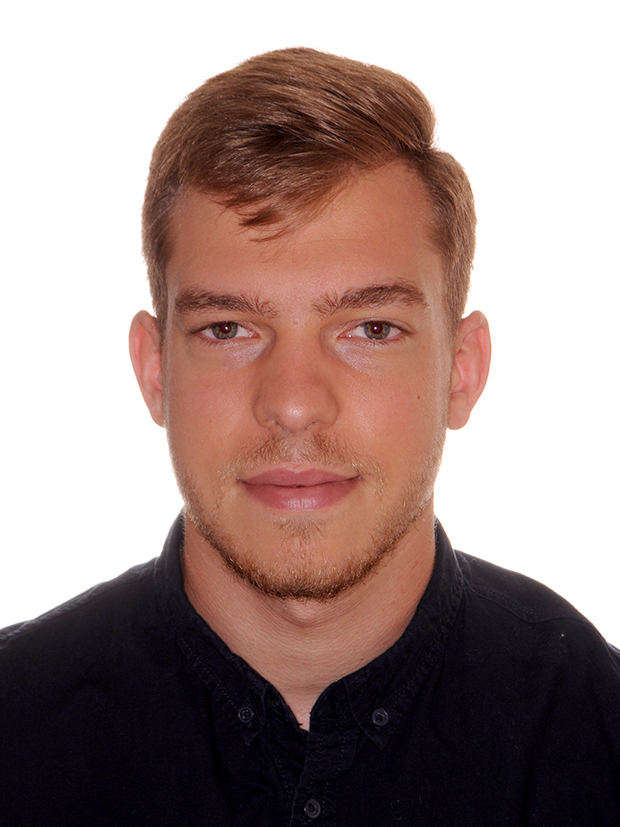Partners
University of Pécs
The University of Pécs (UP) with its 20.000 students, more than 4.500 international students, 2.000 lecturers and researchers, 22 doctoral schools and 10 faculties is one of the largest higher education institutions in Hungary and the
centre of knowledge in the South Transdanubian region. Its roots date back to 1367. The mission of UP is to build a bridge between the economy and science by supporting industry with its research capacity, support the technology transfer of the research results to create marketable solutions and exchange international experiences with research and educational institutions to create synergies. The university knowledge base can be interpreted along three dimensions: research results produced in the university environment & labs; teaching to train highly qualified labour force; business & technology transfer services to support the market introduction of innovations. Students can pursue their studies at the bachelor's level (BA/BSc), master's level (MA/MSc) or doctoral level (PhD, DLA).
UP has started to develop its lifelong learning programs and puts emphasis also on training in the colleges for advanced studies. Faculties offer trainings in the framework of this organisation that encourages students to pursue their own
researches. The doctoral schools offer doctoral degrees that cover a wide spectrum of science, scholarship and art, ranging from classical humanities through social sciences to medical and natural sciences. Concerning R&D, Szentágothai János Research Centre covers all aspects of education, research and innovation at the fields of biomedical, natural, engineering and environmental sciences. (https://szkk.pte.hu/en). Due to the credit system, first introduced in Hungary here in Pécs, an increasing number of Hungarian students participate in international study programs as an integral part of their education, the UP continuously expands and improves its co-operations with other universities and international research institutions to offer more opportunities for students, teachers and researchers. (https://international.pte.hu/)
Since its foundation in 1970 the Faculty of Business and Economics, University of Pécs has become a significant actor in Hungarian business education. The FBE of UP is one of the best qualified higher education institutes of business studies in
Hungary. Meanwhile it has been able to develop its international recognition in education and in research as well.
The faculty is split into five departments, one of them is Department of Marketing and Tourism. The foundation of the Pécs Marketing Workshop coincided with the launch of the Faculty of Business and Economics in 1970; marketing-themed
education has been an organic part of the Faculty’s programme portfolio since the beginning.
In the Department of Marketing and Tourism, the teaching of marketing, now with considerable traditions, takes place at each programme level: higher level vocational training, bachelor, and master level. In the English language bachelor
programme of our Faculty, now with an EFMD accreditation, and also in the PhD programmes in Hungarian and English language, subjects related to marketing are taught by the staff of the department.
One of the main goals of the Faculty, besides the improvement of the quality of the teaching of marketing, is the strengthening of tourism, as a new competency area, by the utilisation of the possible synergies. Tourism is a popular bachelor level programme area both in our Hungarian and the accredited English language programme, and UP is working, by launching a master level programme of tourism in the near future.
Tibor Gonda
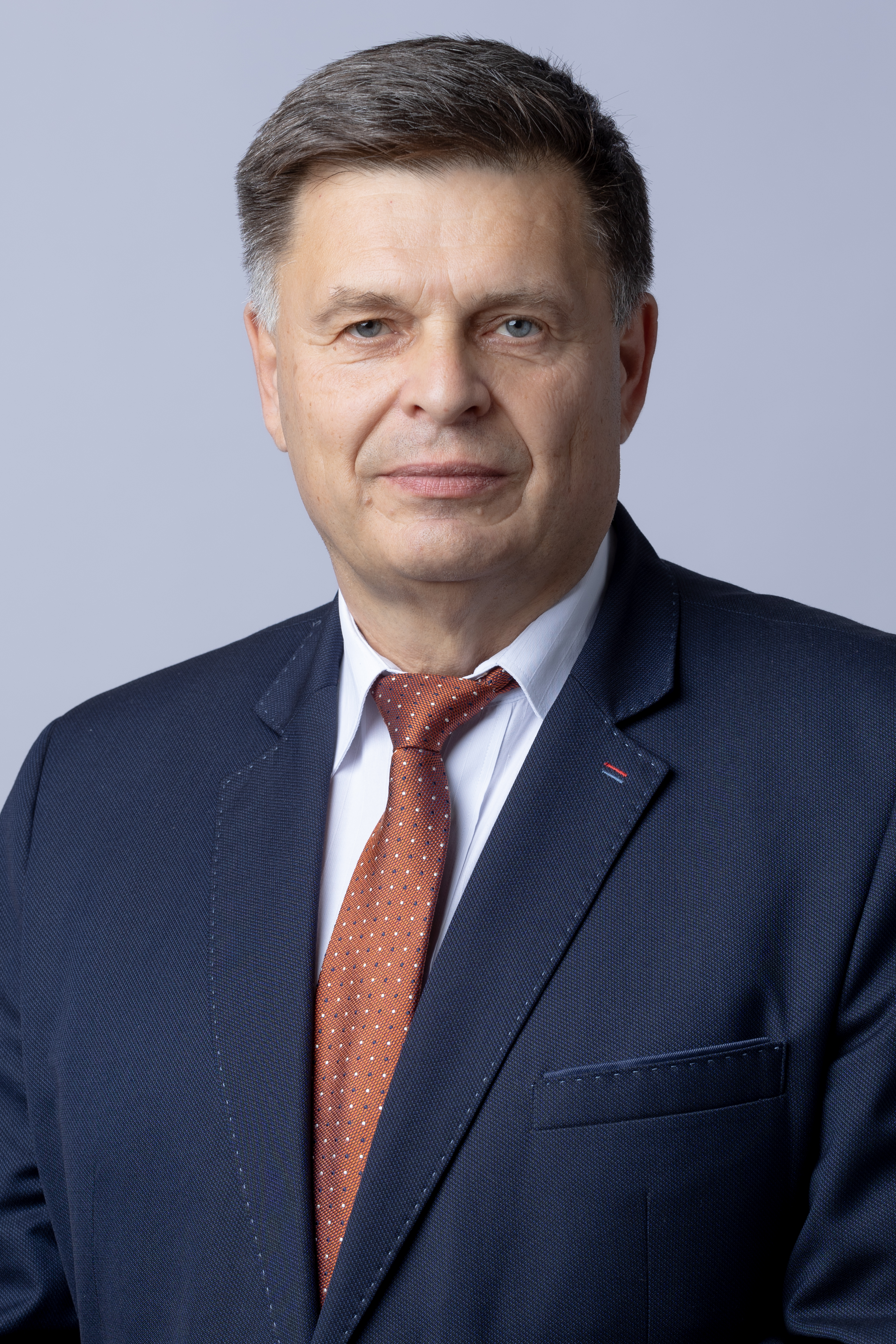
János Csapó finished his university studies in 2000 in the Janus Pannonius University, Pécs (Teacher of Geography and English). In 2001 he received a tourism manager qualification at the same university. He finished his PhD in 2006 and habilitated in 2014. Between 2000-2003 he was a PhD student, 2004-2006 assistant lecturer, 2006-2016 assistant professor, 2016-2020 associate professor and from 2021 full professor. From 2017 he is working in the Institute of Marketing and Tourism at the Faculty of Business and Economics and he is the responsible leader of the tourism trainings at the faculty and the leader of the tourism research group.
He is a member of several scientific committees and editorial member of journals related to geography, tourism and marketing. His major fields of research include investigations on the relationship between tourism and regional development, tourism centre and periphery relations, the reasons for the spatial concentration and de-concentration of tourism, regional tourism geography, tourism product development, cross border tourism development, tourism niche products and tourism trends.
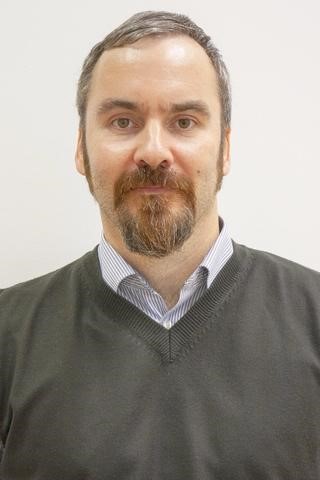
Zoltán Raffay graduated in 1994 as a secondary school teacher of geography and English language, and a tourism manager. In 1997 he received a marketing manager qualification. In 1994 he started his career as a junior research fellow of the Transdanubian Research Institute, Centre for Regional Studies, Hungarian Academy of Sciences, in 1997 he was awarded the research fellow status. In 2004 he got his PhD diploma at the Faculty of Business and Economics, University of Pécs. In 2007 he started his higher education career at the College of Dunaújváros as an assistant professor, since 2011 he has been a lecturer of the University of Pécs . From October 2015 he was senior lecturer at the Faculty of Business and Economics of the University of Pécs, since the end of 2019 he is assistant professor. His field of research is the correlation of tourism and territorial development, and ecotourism.
Since 2011 he has been teaching at the faculties of the University of Pécs (Illyés Gyula Faculty, Faculty of Business and Economics), other Hungarian higher education institutions (the Veszprém and Nagykanizsa Campus of the University of Pannonia), and also at universities abroad as Erasmus research scholarship holder or invited lecturer (Babeş-Bolyai University, Gheorgheni, Romania; Gumilyev National University, Astana, Kazakhstan; Karagandy University, Karagandy, Kazakhstan). He is the leader of one student at the Doctoral School of Regional Policy and Economics, Faculty of Business and Economics, University of Pécs.
He is a member in a number of academic bodies: Hungarian Economic Association; Hungarian Geographic Association; Hungarian Regional Science Association; Association for the Lecturing and Study of Marketing; Environmental, Regional Development and Urban Studies Committee, and Tourism Committee of the Pécs Academic Committee of the Hungarian Academy of Sciences.

Adam Mickiewicz University
Adam Mickiewicz University in Poznań is the major academic institution in Poznań and one of the top Polish universities. Its reputation is founded on 100-year tradition, the outstanding achievements, granted by the European Commission HR Excellence in Research award and the attractive curriculum offered to the students. Since autumn 2019 AMU holds the status of Research University within the Ministry Framework Programme “Excellence Initiative”. The University is a center of academic excellence, where research and teaching are mutually sustaining. The University prides itself on its achievements and aligns its principles with those of the Great Charter of European Universities. It promotes pro-European ideas and actively participates in the international academic community, seeks to implement joint research and educational programs. It aims to strengthen ties with the European Union Member States and embarks on new initiatives conducive to cooperation with the countries of Europe. AMU is a member of: EUA - European University Association, EPICUR –European Partnership for an Innovative Campus Unifying Regions, EUCEN - European University Continuing Education Network.
https://amu.edu.pl/en
Faculty of Geographical and Geological Sciences
Collegium Geographicum and Collegium Geologicum are located next to the Morasko Meteorite Reserve where lumps of iron were found and are treated as evidence of the largest European iron meteorite shower. Our teaching and research cover both terrestrial geography and the environmental impact of human agency. The depth of our research is reflected in the structure of our Faculty, journals we publish and international conferences we host. Our polar station - AMUPS - is located at the end of Billefjord in the picturesque Petunia Bay, only 1300 km away from the North Pole!
https://wngig.amu.edu.pl/en/About-us
Professor Alina Zajadacz is a lecturer at the Chair of Tourism and Recreation, Faculty of Geographical and Geological Sciences, Adam Mickiewicz University in Poznań/Poland. Her research interests focus on tourist potential of towns and cities, sustainable tourism as well as on accessible tourism. She is the author of more than 150 scientific publications, including books: Tourist potential of towns and cities based on the example of some selected towns of the Western Sudeten (2004), Leisure pursuits, tourism and recreation of deaf people in Poland: an outline (2010), Tourism of deaf people: a geographical perspective (2012), Rethinking sustainable tourism in geographical environment. Theory and practices (ed., 2024) and papers, e.g.: Sources of tourist information used by Deaf people. Case study: the Polish Deaf community (2014), Accessibility of tourism space from a geographical perspective (2014), Evolution of models of disability as a basis for further policy changes in accessible tourism (2015). She has participated in projects intended to improve the accessibility of tourism supply to people with disabilities, such as: Tourism for all and Tourism of deaf people and opportunities for its activization through the use of a multimedia system of tourist information.
More information at: https://alina-zajadacz.web.amu.edu.pl/projekty/
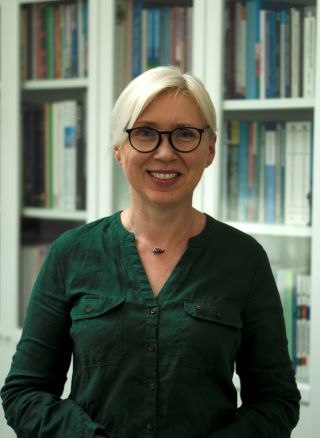
Matylda Siwek, Ph.D. on physical culture, assistant professor at the University of the National Education Commission, in the Institute of Management and Social Issues, in the Tourism and Regional Studies Department.
Her research area includes tourism services, hospitality, inclusive and sustainable tourism, business tourism, heritage and cultural tourism and history of tourism.
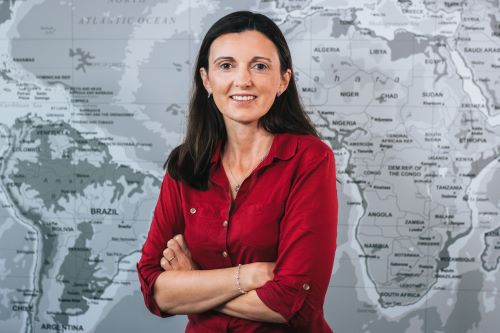
Paweł Sowa is a tour leader and tourist guide. He has been working in tourism sector since 2001, showing Poznań and Poland to foreign tourists in English and Italian. Experience involved also guiding Polish groups traveling abroad to various European countries. He was a councillor of the city of Poznań for 6 years (2018-24) what gave possibility of acquiring knowledge of contemporary social problems including situation of people with disabilities. He wants to focus on accessible tourism research and participating in a project is an advantage to investigate travel-related problems of people with disabilities. As a member of Polish part of the team he is involved in analyzing travel patterns based on questionnaire results in partner countries, contact with media and promotion of the project.
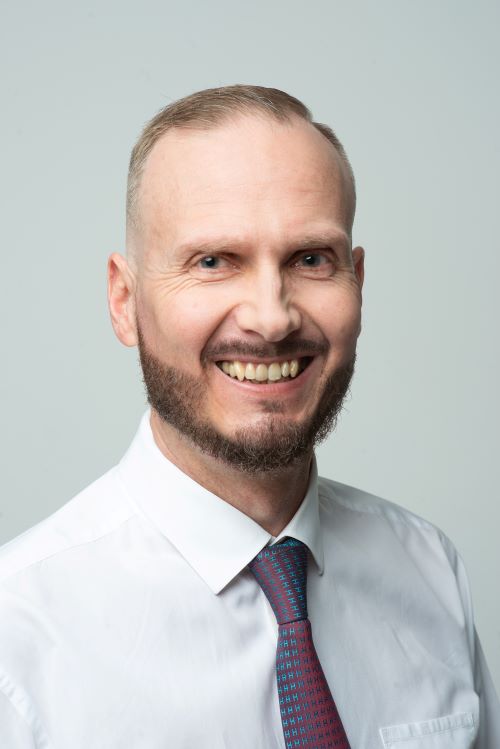
University of Zagreb
University of Zagreb (UNIZG) is the flagship educational institution in Croatia with 31 faculties, 3 art academies and various university centres and departments. As a comprehensive public Central European university, UNIZG offers education programmes in all scientific fields and a broad spectrum of courses at all study levels, from undergraduate to postgraduate for more than 62,000 students. The University excels not only in teaching but also in research, contributing over 50% to the annual research output of Croatia.
As one of the constituent units of UNIZG, the Faculty of Economics and Business Zagreb (FEB) is participating in the project proposal as partner organisation. FEB was founded in 1920 and is the oldest institution of higher education in economics in this part of Europe. Currently, the FEB is the leading and largest institution of higher education, teaching entrepreneurship, business, management and economics in the region. FEB is the only university-level institution (faculty) in the Republic of Croatia that has been awarded AACSB Business Accreditation, which has positioned FEB among the top 5% of higher education institutions in economics and business globally. FEB was also awarded the EPAS accreditation and it holds accreditation by the EQUIS, which places this institution among the world’s best business schools.
The FEB aims to train the next generations of the country’s business and economic leaders. The cooperation between FEB and the corporate sector based on education as well as scientific research and expertise is the vital link between institutions that generate new knowledge and search for new possibilities to share and distribute its knowledge. FEB has become increasingly committed to meeting its students’ expectations by developing modern educational programs and encouraging scientific research.
FEB has over 60 years of tradition in tourism education and research. With its Department of Tourism FEB has been a member of prestigious UNWTO Knowledge Network since 1988. The Department is among the first educational institutions in the World receiving the prestigious UNWTO certificate (TedQual certificate) in 2001, which guaranteed that education and research at the institution was carried out in accordance with the highest quality standards prescribed by the UNWTO.
Nevenka Čavlek is Tenured Professor of Tourism Economics and Tourism Management at the Faculty of Economics and Business, University of Zagreb. She earned her PhD in Economics from the University of Zagreb in 1997. Her entire working life has been devoted to practice, research, education and experiential learning in the field of tourism. Her longstanding engagement in different ways of thinking, different methods of learning, different cultures, and a real tourism business environment enabled her to publish academic articles and book chapters on different tourism topics ranging from tour operation’s management and economics, to distribution channels in tourism, consolidation processes on the European market and experiential learning in this field. She has been involved in many research projects financed by either the Research Fonds of the University of Zagreb, Leeds Beckett University (UK) or the EU. She is the Editor-in-Chief of the interdisciplinary scientific journal Acta Turistica; Associate Editor of Encyclopedia of Tourism (Springer, 2nd Edition) and editorial board/review member of five international tourism journal. Also, she is a head of ITHAS project (International Tourism and Hospitality Academy at Sea), international intensive study module.
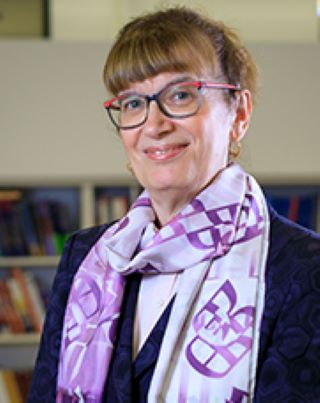
Vanja Krajinović is Associate Professor at the Department of Tourism, Faculty of Economics and Business, University of Zagreb. She earned her PhD in Economics from the University of Zagreb in 2014. Her research is primarily focused on the sustainable tourism development and different models for measuring sustainability within destinations. She is also involved in researching community-based tourism development, destination climate adaptation, overtourism and managing sport in tourism. She has been involved in research project financed by the Research Fonds of the University of Zagreb and by the Leeds Beckett University (UK). She is Associate Editor of the interdisciplinary scientific journal Acta Turistica. She publishes academic articles and book chapters on topics closely related to the challenges of sustainable tourism development and holds several courses on all levels of study.
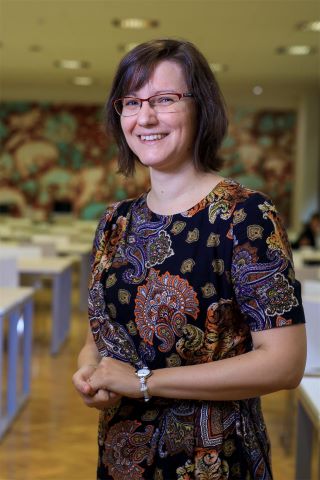
Sapientia Hungarian University of Transylvania
Sapientia Hungarian University of Transylvania is an independent university of the Hungarian community in Transylvania, Romania. The primary goal of the University is to provide the education and academic life of the national community with a high professional standard. The University's mission is to promote Christian and universal human values, to provide competitive, quality education and research in the region, and to maintain the traditions of Hungarian education in Transylvania. The institution takes responsibility for the knowledge it provides to its students, for the future of its faculty and staff, for the quality of its research and for the transparency of its operations. The University's guiding principles are humanity, love of neighbour, fairness, consistency, ethical conduct and justice.
The University has 3 faculties. The University currently offers 32 bachelor's and 13 master's degrees. The University has 4 separate faculties in 4 different locations in Transylvania. In the academic year 2023/2024, the 4 faculties will have a total of 2179 students and 406 teachers, of which 217 are full-time lecturers.
The Faculty of Economics, Social Sciences, Humanities and Engineering, located in Miercurea Ciuc, has a diverse and regionally embedded teaching and research activity in the fields of engineering, economics, social sciences and humanities. In total, there are 14 bachelor's and 5 master's degree courses in Chisinau, with 756 students currently studying.
Students can obtain BSc degrees in social sciences, humanities and engineering. The main beneficiaries of the present project are the Hospitality and Agro-tourism students, who will directly benefit from the project activities, as their curricula will be developed during the implementation and their practical training will be improved thanks to the project. The trainers attach great importance to practice-oriented training, linking students in a timely manner with their future employers, and the curricula will be developed with the involvement of regional tourism institutions and enterprises, as well as institutions in the field.
Dr. Benedek Nagy - The project leader from Sapientia University
Dr. Benedek Nagy is assistant professor at Sapientia University and head of the Department of Business Sciences. He graduated from the tourism, commerce and services program in Bucharest, Romania, in 2002, and in 2011 had a PhD in place marketing and tourism in Pécs, Hungary. After several trips in the USA, he returned home to Romania. He was involved for almost 10 years in a large number of tourism development projects, at a major consultancy firm in tourism and development, market leader in Hungary (Aquaprofit Zrt.). These projects varied on a large scale, from ecotourism and spa tourism planning and investments to different research projects. He also was assistant researcher for the National Tourism Research and Development Institute in Bucharest, between 2005 and 2008. Since 2016 he has worked solely as a university staff, managing department administration and research projects as well. His major field of research is the formation of tourism supply, the marketing of tourism and destinations and place branding. In 2021-2022 he participated in az Erasmus+ project aiming to release university course materials and papers in the field of health tourism (Erasmus+KA2 Strategic partnership in the field of Higher Education Erasmus + Program , HEAlthy Life ALLiance - HEAL ALL).
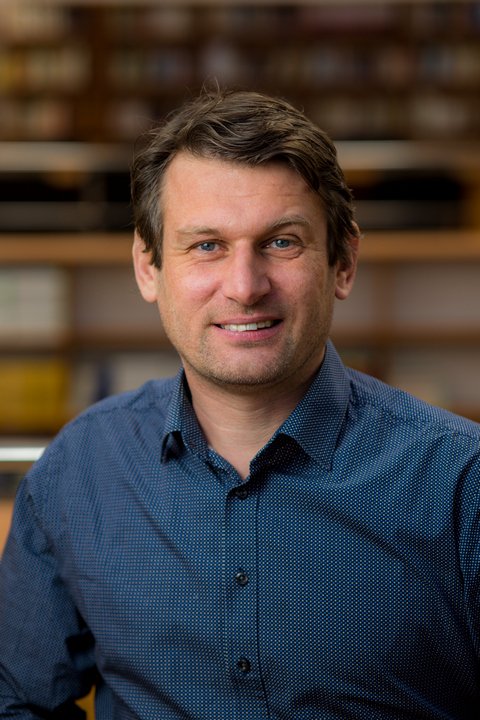
Dr. Blanka Bálint, project participant from Sapientia University
Dr. Blanka Bálint is an assistant professor at the Sapientia–Hungarian University of Transylvania, Romania. She received her PhD in Sociology at the Corvinus University of Budapest. She has also completed two Master's degrees, one in Zone and Community Development and one in Mental Health. Her research interests include career guidance, NEETs, labour market, reactance, news avoidance and grief. Her latest international research project was Lost Millennials-Transnational Research Network for Evaluation of Initiatives targeting 25+ NEETs’.
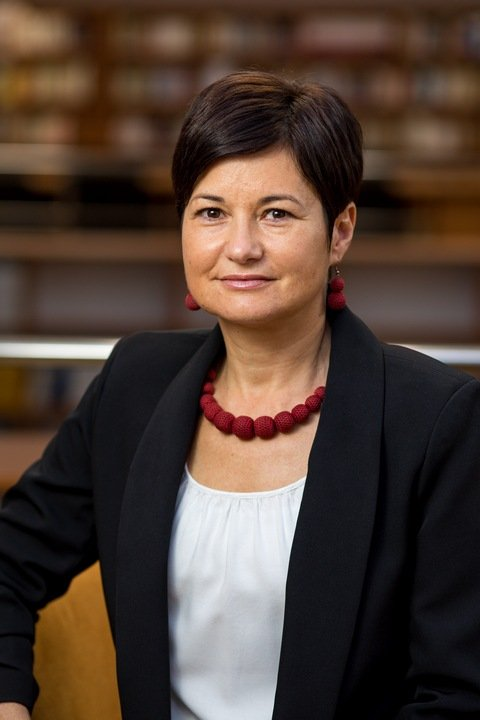
Dr. Ottilia György, project participant from Sapientia University
Dr. Ottilia György is assistant professor at the Sapientia Hungarian University of Transylvania at the Department of Economic Sciences, and has been teaching since 2002. From 2016 to 2020, she was head of department at the Department of Economic Sciences. She graduated management program at the Babes – Bolyai University in Cluj Napoca, Faculty of Economics, Romania, in 1998, and in 2010 had a PhD in regional development in Debrecen, Hungary. She was involved for almost 20 years in a large number of regional and local development projects, economic development projects, and she is member of several research groups. Her major field of research is the regional development, regional economy and sustainable economic development. She is currently a member of the external advisory board of the Sustainable Development Department of the Romanian Ministry. In addition, she is currently a PhD student at the Faculty of Economics of the University of Debrecen, Faculty of Economics, Ihrig Károly, where he is currently completing her second PhD.
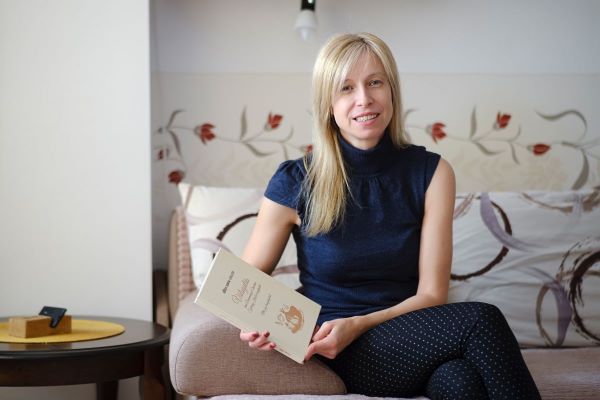
Drd. Norbert Gergely, project participant from Sapientia University
Norbert Gergely is an assistant lecturer at the Sapientia – Hungarian University of Transylvania, Romania. He received his BSc degree in Engineering and Management in Catering and Agrotourism at Sapientia – Hungarian University of Transylvania, Romania. He has also completed his MSc in Applied Economics and Finance. He is currently a 2nd year PhD student at the University of Debrecen, Károly Ihrig Doctoral School of Management and Business. His research interests include the evolution of tourism supply and the tourism destination management.
